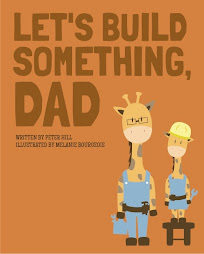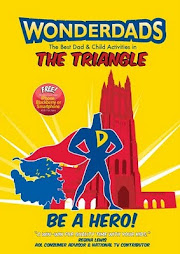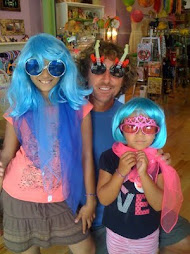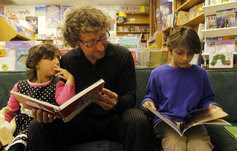The challenges that many young people face these days are well known. The truth of the matter is that it's tough being a kid. Add a few unfortunate circumstances to the equation, or "risk factors" as we call them in the human services field, such as living in poverty or growing up in an abusive home, and the odds for success become even steeper.
Unfortunately, certain neighborhoods in the Southside of Chicago and other pockets throughout the US provide the perfect formula for failure for its young people. For too many, the odds are almost insurmountable.
But, it's not all bad news. Every day, children who are on a collision course with failure find that spark within themselves and figure out a way to buck the trend. Children are amazingly resilient. The ones who survive typically have someone in their corner.
I've spent most of my career working with children and have come to the realization that the most effective way for wounded children to heal is through the power of relationships. What many of our vulnerable children need most is some responsible adult in their lives who can send this message loud and clear: "I'm just not going to let you fail."
Preferably from someone who isn't paid to be there, like a volunteer mentor.
The benefits of mentoring are irrefutable: youth with mentors have better attendance and attitude toward school, have less drug and alcohol use, have more trusting relationships and better communication with parents and caregivers, are less violent, have a better chance of going on to higher education and are less likely to get pregnant (to name a few). City officials in Chicago (as well as the White House) are wise to push mentoring as one solution to the violence wreaking havoc in some of its schools and communities. More cities should do the same.
It's been estimated that there are 17.6 million young people in the United States who could benefit from a one-on-one mentoring relationship, but only 2.5 million have one (that's less than 15 percent).
The impact of spending an hour or so a week with a child can be tremendous.
Ask Durham (NC) City Councilman Mike Woodard. Years ago, Mike mentored a young boy who was failing miserably in school. Mike noticed that he had real artistic talent and enrolled him in a series of classes at the Durham Arts Council. Almost immediately, his outlook improved. His grades got better and he was less of a trouble-maker. The boy eventually graduated from high school and enrolled in a community college to pursue a degree in commercial art. Who knows what path he would have taken if not for Mike?
Like most mentors, Mike claims that the experience was just as positive for him as for the child. He continues to be a strong supporter of mentoring. In fact, he and I worked together to form an alliance of mentoring organizations in Durham a few years ago in an effort to find a suitable mentor for every kid in town who needs one.
Or ask Tasha Melvin, who runs mentoring programs at a local nonprofit. At age 6, Tasha and her twin sister were matched with a mentor, Jane Gallagher, whom Tasha claims "transformed" their lives. When Tasha talks about Jane, with a quiver in her voice and a tear in her eye, there becomes little doubt about the value of mentors. Even though Jane was introduced to the twins nearly three decades ago, her impact is still felt every day. Tasha went on to dedicate herself to helping young people like her who had a rough start in life.
Undeniably, too many of our children are in trouble. But solutions exist. And almost everyone can contribute in some way. Perhaps mentoring a young child who needs a positive, adult role model in his or her life can be your contribution.
You don't need any special skills or education to be a good mentor. You just need to care about kids and have a little extra time on your hands. And it doesn't cost a lot of money. A birthday present or a Happy Meal from time to time may be appropriate. But most mentoring programs I know about specifically ask that you don't spend much money on the child. Mostly what the kid will need from you is your time, as well as your patience, trust, respect and ear. And to teach them the really important things in life: how to tie a tie or make a grilled cheese sandwich or balance a checkbook or treat a girlfriend with respect...
Sound like something you can do? For more information and to find a mentoring program in your area, visit: mentoring.org
skip to main |
skip to sidebar

Twitter
"Essays and observations on current events, social issues and politics from a slightly left-of-center perspective"
About Me

- Stephen Raburn
- Durham, North Carolina:
- ...is a child advocate, social philanthropreneur, writer, blogger, lecturer, daydreamer, activist, publisher, idealist, coffee snob and father.
Search the Web
WONDERDADS / The Triangle
Article in Carolina Parent
Interests
- coffee shops, progresive politics, social justice, human rights, ice cream, trip hop music, sunny beaches, giraffes, Love Parade, nightswimming
Favorite books/writers
- "On Beyond Zebra" by Dr. Seuss, "Geek Love" by Katherine Dunn/ Anais Nin, Albert Camus, Franz Kafka, Maya Angelou, Dr. Seuss, Doris Lessing, Jean-Paul Sartre
heroes
- Marian Wright Edelman, Jimmy Carter, Morris Dees, Harry Chapin, Martin Luther King, Jr., John F. Kennedy, Robert Kennedy, Noam Chomsky, Dr. Seuss
Favorite Music
- Trip hop/down-tempo electronica, Bjork, Hope Sandoval/Mazzy Starr, Moby, Portishead, Morcheeba, Camera Obscura, Hooverphonic, Massive Attack, Derrick Carter, DJ Tiesto, DJ Sasha, Tori Amos, Imogen Heap, Adele, Johnny Cash, Tricky, Zero 7, Koop, Thievery Corporation, Chemical Brothers, Beth Orton, Morrissey, Jem, Sia, Fleet Foxes,Yeah Yeah Yeahs, Kate Havnevik, DJ Mark Farina, DJ Spooky, Frou Frou, Martina Topley-Bird, Ivy, Flunk, Lykke Li, Armin van Buuren, Wax Tailor, Gotan Project...
favorite magazines
- The Sun, Utne Reader, ColorLines















